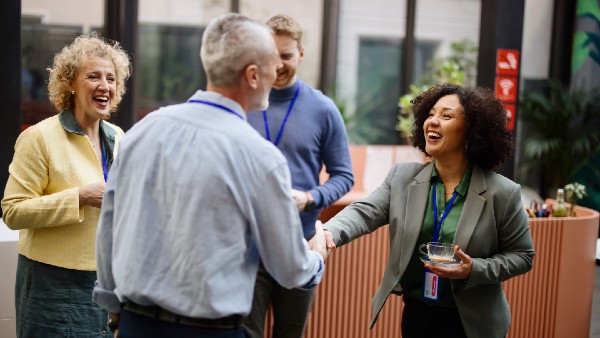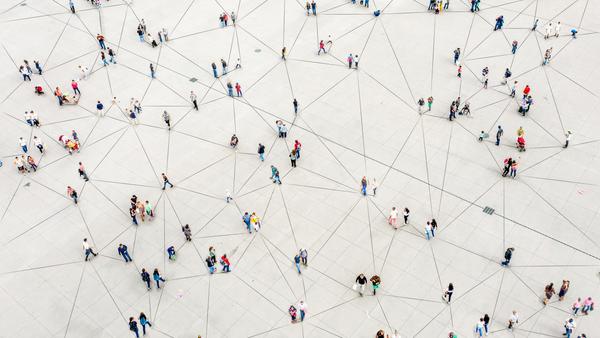Are there meaningful forms of self-care outside of social-media-friendly gestures and purchases?
I host a BBC Radio 4 show about Millennials called Peer Group. Which is very funny, given the nearly geriatric average age of the typical Radio 4 listener. Hosting a Radio 4 show about Millennials is like hosting a North Korean TV show about democracy. But anyway, I do, and when the show started in 2016, the number one question I was asked was “what do Millennials want?”
A really easy question to answer, because Millennials want what everyone wants, and older generations seem to have. Housing. Financial security. Professional fulfilment. Responsibility.
I do not get that question any more. I get asked why Millennials are so unhappy. The idea that there are millions of Millennials walking around close to blowing our tops is taken as such a given that a whole new buzzword has cropped up around mitigating that unhappiness: self-care.
Smoothies. Staycations. Fancy candles. Products sold by cooing influencers. The behaviour and consumer habits of Millennials that fall under the lavender-scented, terry-cloth banner of self-care have become a key topic in the culture wars. Proponents argue that we need time to ourselves, given our manifest stresses. Opponents from previous generations – who apparently had uniformly hardscrabble lives – insist that self-care and the focus on it is just another example of Millennial self-indulgence.
I hate the term, personally, because it is both maddeningly vague and a giant paradox. One of the biggest reasons we are actually unhappy is precisely because of this focus on the self. Millennials, seemingly overnight, have become supremely isolated. Like the loser in your high school class, Millennials are creepy loners. In a 2019 poll, more than a quarter of Millennials said they have no close friends at all.
Social media bears a lot of responsibility here. When Facebook appropriated the term ‘friend’ it started to lose all meaning. A friend has devolved from someone you had a shared history and bond with to someone you met once at a coffee shop.
I spoke to an actual friend, David Burstein, author of a great book about Millennials called Fast Future, and he said something more expansive.
“When technology changes language, it permeates culture, and comes back around to change non-technological behaviour. When things we actually want turn into buzzwords, they become devalued and warped.” This has happened to friendship, and the same is happening to self-care. The urban form of self-care is presented as taking a day off work to get an avocado rice bowl and sit at home watching Netflix. I am not siding here with the old whingers who say Millennials are soft – sometimes you do need mental health breaks, and you should be judicious about the level of toxicity you allow in your life – but a good exercise in self-care might be cultivating habits that build strong relationships with other people.
Self-care can mean putting yourself in difficult situations. Dealing with an issue affecting a friendship. Having discussions where how you feel is genuine rather than emotional currency. Creating an environment where you feel protected, fulfilled and empowered every day? That is actual self-care.
Although, there is nothing wrong with the occasional bubble bath. That counts also.
Alex Edelman is a stand-up comedian and writer.
This article first appeared in the RSA Journal Issue 3 2021.
Related articles
-
Introducing the Fellowship Promotion Guide
Fellowship news
Fionna Monk
Our brand-new Fellowship Promotion Guide is a powerful new resource designed to make it easier than ever for current Fellows and staff to share the value of the RSA Fellowship with others.
-
Why 2025 is an exciting year to be an RSA Fellow
Fellowship news
Fionna Monk
Happy New Year! 2025 is shaping up to be a landmark year for the RSA Fellowship, brimming with new opportunities, initiatives, and global collaborations. There’s never been a more exciting time to be part of this dynamic and engaging community. Here’s more on why this year promises to be an inspiring and impactful year for RSA Fellows worldwide.
-
Counting the cost of bowling alone
Blog
Andy Haldane
In his 2025 CEO Lecture, Andy Haldane addresses how the ever-increasing cross-border flows of goods, people and information affect widening divisions and accelerate the depletion of social capital.




Be the first to write a comment
Comments
Please login to post a comment or reply
Don't have an account? Click here to register.